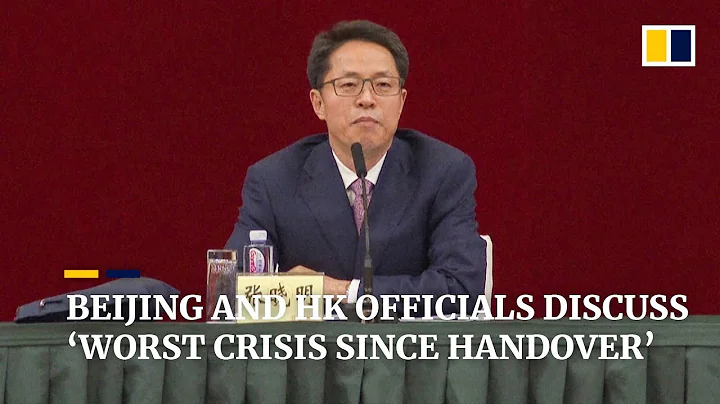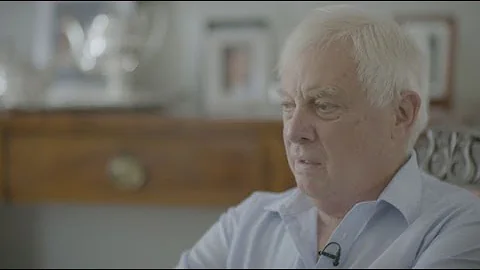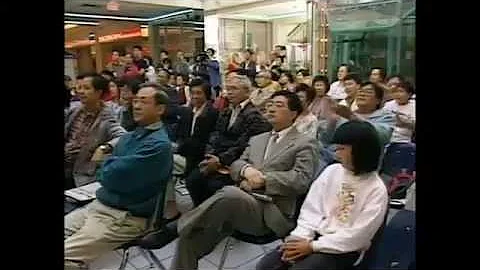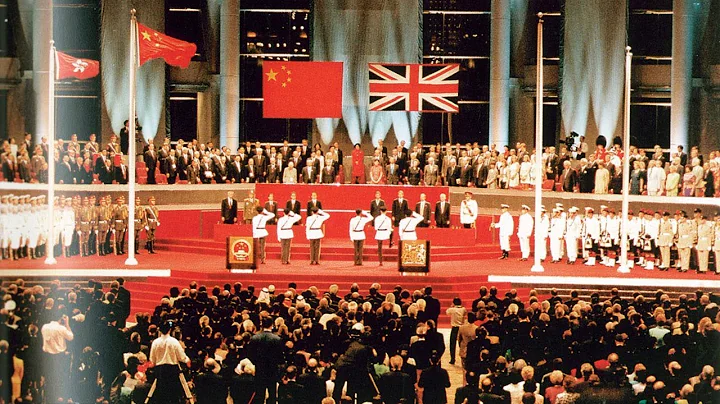On July 1, 1997, Hong Kong returned to . July 1 this year will be the 25th anniversary. Every time I see the five-star red flag fluttering in the wind over Hong Kong, I always think of one person, that is Deng Xiaoping .
As the main figure in promoting the return of Hong Kong , he undoubtedly deserves the most credit. The return of Hong Kong has undoubtedly set an example of peaceful reunification in contemporary China, and has made significant contributions to the history of the Chinese nation and Chinese civilization.

However, when talking about the return of Hong Kong, we will always think of Deng Xiaoping's genius idea of "one country, two systems " in the past, and the thrilling confrontation between and former British Prime Minister Mrs. Thatcher.
Now let us have a glimpse of the great man's heroic appearance, and say: Deng Gong will last forever!
The modern history of Hong Kong is a shameful history of China losing its sovereignty.
Since the late Qing Dynasty, due to the government's corruption and incompetence, the country has become poor and weak, and has been repeatedly bullied by foreign powers. From the 1840s to the 1890s, a series of unequal treaties were signed that were humiliating and humiliating the country, so that Hong Kong fell into the hands of the British.
From June 1840 to 1860, the Qing government was defeated twice in succession. In August 1842, it signed the "Treaty of Nanjing" with the United Kingdom, losing Hong Kong Island and Ap Lei Chau. ; in October 1860, it signed the "Treaty of Nanjing". "Beijing Treaty", losing the jurisdiction over the Kowloon Peninsula, the south of T Street and Stonecutters Island. Later, in 1898, the United Kingdom signed the "Special Agreement to Expand the Boundary Site of Hong Kong", and all the land in Hong Kong's "New Territories" was leased to the United Kingdom for a period of 99 years. Since then, China has completely lost its sovereignty over Hong Kong.
For many years after that, China was lost in seeking a way out and fell into the quagmire of war, until Red Sun appeared in TVXQ. The issue of China's territorial integrity has also been put on the national agenda.

On the issue of Hong Kong's return, China expressed its firm defense of national sovereignty . Looking at the entire process of Sino-British negotiations on the Hong Kong issue, it can be seen that it was precisely because of Deng Xiaoping's insistence on national sovereignty and national dignity that the British side completely gave up their unrealistic illusions about Hong Kong.
Deng Xiaoping’s first intervention in Hong Kong issues began on May 25, 1974. Deng Xiaoping, who came back again, gave a speech at a banquet to welcome former British Prime Minister Heath, in which he mentioned the issues left over from Sino-British history, that is, the Hong Kong issue.
Deng Xiaoping said:
"This problem should be solved at the appropriate time! Although China and Britain have different national systems, we can definitely seek common ground while reserving differences, make friends, and develop relations on the basis of the Five Principles of Peaceful Coexistence!"
At this time Although the idea of "one country, two systems" has not been mentioned yet, there are already signs of it. mentioned the Hong Kong issue to former British Prime Minister Heath at the right time, which actually sounded the alarm in advance.

Sure enough, in the late 1970s, the British government. This allowed the Governor of Hong Kong MacLehose to come to Beijing to "throw stones to ask for directions". This also kicked off the prelude to the Sino-British solution to the Hong Kong issue.
Deng Xiaoping knew very well that MacLehose came just to test China's trump card on the Hong Kong issue. Deng Xiaoping met with MacLehose and blocked his mouth in advance. He said: "Hong Kong is a part of China. This issue itself cannot be discussed!"
MacLehose looked ugly, and then Deng Xiaoping said: "China It will also focus on the special status of Hong Kong. Even if there is some kind of political settlement, it will not harm the interests of investors in Hong Kong. "
In other words, at this time, Deng Xiaoping had already conceived the idea of "one country, two systems". That is to say, if Hong Kong will continue to become a British colony, it must maintain Hong Kong's special status and ensure its prosperity.
In fact, when China and the United States established diplomatic relations, Deng Xiaoping mentioned this idea on the issue of peaceful reunification of the motherland. At that time, the Taiwan issue was discussed with foreign guests, and Deng Xiaoping expressed that he would respect the reality of Taiwan. At this time, had begun to transform from the original "military reunification" and "one country, one system" to "peaceful reunification, one country, two systems."
In 1981, our country publicly stated nine policies for Taiwan to achieve peaceful reunification with the motherland, and clearly mentioned "one country, two systems." The concept of "one country, two systems" was also formally formed.

Regarding the issue of Hong Kong's return, Deng Xiaoping mainly considered two issues at the time:
First, when and how to restore Hong Kong's sovereignty; second, how to ensure Hong Kong's stability and prosperity after its return.
To this end, Deng Xiaoping personally communicated with people in Hong Kong, including Fei Yimin, Wang Kuancheng, Jin Yong and others, and set up a research team to conduct on-site inspections in Hong Kong. And precisely because of these efforts, the idea of "one country, two systems" in has become clearer in .
In 1982, the former British Prime Minister visited China for the fourth time, and the two sides reached an agreement on how to deal with the Hong Kong issue. Shortly after the discussion, it was decided that the Chinese government's basic position and principles for handling the Hong Kong issue were officially announced:
must take back Hong Kong in 1997 and resume the exercise of sovereignty; on the premise of resuming the exercise of sovereignty, Hong Kong's economy and stability must be guaranteed, and Hong Kong's economy and stability must be guaranteed. A 16-character policy was issued: "Recover sovereignty, maintain prosperity, maintain an unchanged system, and let Hong Kong people govern Hong Kong."
At this point, the policy of "one country, two systems" has been basically completed. Negotiations between China and Britain on resolving the Hong Kong issue were clearly mature. In 1982, the Chinese government sent an invitation to then-British Prime Minister Margaret Thatcher to visit China.
Mrs. Thatcher, known as the "Iron Lady", came to China in September of this year with the arrogance of Britain's victory in the Falklands War.
She believes that can use persuasion or suppression to prevent China from taking over Hong Kong; the other is to make Hong Kong independent and become Singapore second; the worst is to "exchange sovereignty for governance rights", returning sovereignty in name only. Give it to China, but let Britain continue to govern Hong Kong.
However, this is nothing more than Mrs. Thatcher’s unrealistic fantasy after some discussions in the UK..
html On the afternoon of September 22, Mrs. Thatcher arrived in Beijing on a special plane. The victory in the Falklands War still filled her and his faces with confidence. She firmly believes that the best interests can be obtained on the Hong Kong issue.After two days of rest, at 9 a.m. on September 24, Deng Xiaoping met with Mrs. Thatcher at the Great Hall of the People . Mrs. Thatcher came to the Great Hall in advance. She first came to the Xinjiang Hall and met with Deng Yingchao, and then came to the Fujian Hall. As soon as he walked through the door, Deng Xiaoping came over with a big smile and shook hands with Mrs. Thatcher.
Mrs. Thatcher said: "I am visiting China as the current Prime Minister, and I am very happy to see you!"

Deng Xiaoping replied calmly: "Yes, I know several British Prime Ministers, but all the ones I know have resigned. "Welcome!"
The two then walked into the Fujian Hall and sat down, and then exchanged brief greetings. After a few minutes, reporters were ushered out and the talks were held behind closed doors. The venue once became serious about .
Mrs. Thatcher struck preemptively:
"The three treaties regarding Hong Kong are written in black and white. This is an indelible fact. Since the treaties still exist, they must be abided by."
insists that the three treaties are still valid, This was an attempt to make Deng Xiaoping retreat. Then he "threatened":
"If China takes back Hong Kong, it will have a catastrophic impact on Hong Kong and destroy Hong Kong's prosperity."
Obviously, Mrs. Thatcher threw out her previous preparations at the beginning of the meeting. card, that is, "exchanging sovereignty for power of governance."
Faced with the "heavy bomb" thrown by Mrs. Thatcher, Deng Xiaoping responded:
"Our position on Hong Kong is clear. There are three main issues: first, the issue of sovereignty; second, what kind of measures China will take after 1997 ways to manage Hong Kong and maintain its prosperity; third, China and Britain must properly negotiate how to ensure that there will be no major fluctuations in Hong Kong in the 15 years from now to 1997."

then expressed its attitude towards the three issues. , a solution is given.
Regarding the issue of sovereignty, Deng Xiaoping spoke fiercely:
"The issue of sovereignty is not an issue that can be discussed. Hong Kong must be taken back in 1997. There is no room for negotiation. If Hong Kong cannot be taken back in 1997, no Chinese leader or government can Account to the Chinese people, not even to the people of the world. If we don’t take it back, the Chinese government will become the late Qing government, and the people will have no reason to trust us. Any Chinese government should step down and withdraw from the political stage.” : "No later than one or two years later, China will officially announce its decision to take back Hong Kong." means that China will negotiate to resolve the Hong Kong issue before 1983.
Regarding the second point, Deng Xiaoping said he was not worried. He pointed out:
"To maintain Hong Kong's prosperity, we can cooperate with the United Kingdom, but this does not mean that maintaining Hong Kong's prosperity must be achieved under the jurisdiction of the United Kingdom. The fundamental problem is that after Hong Kong's return, China needs to implement policies in Hong Kong that are suitable for Hong Kong."
In this regard, Deng Xiaoping added: "Hong Kong's current political and economic systems, including some laws, can be retained. However, some reforms that need to be reformed have to be reformed, and only systems suitable for Hong Kong will be retained."
Regarding the third point, Deng Xiaoping added It is unabashed:
"I am worried about how to make a good transition in the next 15 years. I am worried about artificial chaos during this period. There may be not only foreigners but also Chinese, and it is very easy for the UK to create chaos." ”
As soon as these words came out, Mrs. Thatcher was given a blow and sounded the alarm. Then he said forcefully: "If there is chaos in the middle, the Chinese government will be forced to consider the time and method of recovery."
This is actually implementing with both carrot and stick.
Deng Xiaoping then shifted the negotiation issue to the common ground between China and Britain: "That is, under the premise of Hong Kong's return, ensure that the 15-year transition period will be smooth and Hong Kong will continue to prosper after 15 years."
In the end, it is The policy of "one country, two systems" was introduced to solve the Hong Kong problem, and Mrs. Thatcher accepted it at the time.
At the end of the negotiation, Deng Xiaoping solemnly stated:
"We hope that the problem can be solved through peaceful negotiations for a period of two years. If we cannot reach an agreement within two years, China will unilaterally announce the decision to take back Hong Kong. If a major problem occurs during the transition period, If the turmoil occurs, China will use other methods to solve it at another time. In other words, it will not be solved peacefully until the "1997". It can be said to be very impressive.
After this interview, China and the UK have been secretly negotiating on the Hong Kong issue. But until early 1983, no substantial progress had been made on the issue.
In January of this year, Deng Xiaoping issued an "ultimatum":
"If Sino-British negotiations cannot proceed normally, China will unilaterally announce the decision to take back Hong Kong no later than September 1984." And stated again; " If there are major fluctuations during the transition period, China will not consider changing the method and time of taking back Hong Kong! "
Once the "ultimatum" was issued, Mrs. Thatcher responded two months later, saying that as long as the policy is appropriate, she is ready to submit it to Parliament. It is recommended that the sovereignty of the entire Hong Kong be returned to China.
At this point, Sino-British negotiations are on the right track. In December 1984, Mrs. Thatcher visited China again and signed the "Sino-British Joint Declaration on the Question of Hong Kong", marking the agreement reached in the negotiations.
Powell, then Margaret Thatcher's foreign and defense policy adviser, later recalled:
"The two met again, and the atmosphere was completely different from the first time. The two were in high spirits. The leaders' sense of success can be seen from their It can be seen in the mutual congratulations."
The agreement officially came into effect on May 27, 1985. The Sino-British negotiations on the Hong Kong issue were successfully concluded, and Hong Kong officially entered a 12-year transition period.
In this regard, Deng Xiaoping clearly instructed: "During the transition period, we must ensure that there are no major fluctuations or twists and turns, and maintain Hong Kong's prosperity and stability; we must create conditions for Hong Kong people to successfully take over the government."
In order to consolidate Hong Kong Returning to this victory, one of the things Deng Xiaoping focused on after that was the formulation of the Basic Law of the Hong Kong Special Administrative Region. It is precisely because of the enactment of the Basic Law of that it has laid a solid foundation for Hong Kong's peaceful and stable return.
Since then, various preparations for Hong Kong's return have been proceeding in an orderly manner, and the countdown to that glorious moment on July 1, 1997 is also in progress.
Powell later recalled: "I remember that when the two leaders met for the second time, they made an appointment to meet in Hong Kong in 1997 and went to Hong Kong to attend the handover ceremony."
However, this agreement was due to Deng Xiaoping's absence. In the end, was not implemented. Deng Xiaoping also said many times: "Personally, I am willing to live until 1997 to see with my own eyes China's resumption of the exercise of sovereignty over Hong Kong."
He also said: "My biggest wish now is to live until 1997. Because Hong Kong returned to China at that time, I still wanted to see it! "
In 1992, Deng Xiaoping was touring the south of Shenzhen. He boarded the China World Trade Center and looked across the river at Hong Kong. Perhaps she was still thinking: It would be great if she could live until 1997. .
But unfortunately, he failed to wait until July 1 and passed away on February 19, 1997. 33 days later, Hong Kong returned to the motherland.
Deng Xiaoping once said: "What I have done is nothing more than a reflection of the wishes of the Chinese people and the Chinese Communists!" He placed himself very low and raised the people and the Chinese Communist Party so high simply because he had great respect for this party. , the deep love for the people and the country!
I would like to write this article to pay tribute to Deng Gong, who will live forever!





















